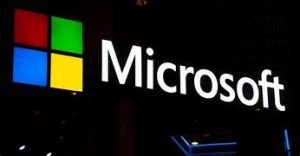
Business growth in any part of the world is a challenging task without knowing the AML compliance mechanisms. Over time, requirements to control anti money laundering have changed manifold. Businesses are also required to comply with the updated legislative measures by global regulators. Industries are no more immune to surviving illegal cash flows to different unverified accounts. As per the expert’s opinion, over 80% of cash flow is trade-based money laundering. Unlike banking and other financial crimes, the identification of money laundering is a difficult process.
Atlantic Council reveals a Latvian banking money laundering scam of billions of dollars. The lack of AML systems in financial companies is affecting the financial landscape, but due attention to curtailing illegal monetary aims can help to control it.
What is Anti Money Laundering?
Anti money laundering process is the antidote to illegally obtained money. It ensures that crime does not cost the domestic and international financial systems around the globe. Money laundering does not sound like a serious threat at first, but gradually it starts penetrating into financial businesses.
KYB to Control Illicit Cash Flow
Know Your Business “KYB” is about the verification of business organizations before making any financial deal. It includes the business PAN card, an authentic address document, UOBs, etc. KYB is mandatory to proceed before allowing any organization to become part of the financial system. Digital onboarding of startups or businesses can handle illegally obtained money from illegitimate sources. Trade-based money laundering is done using items other than money. Payment flaws on the export and import side need strict financial regulations. US Global Financial Integrity reports a $1.6 trillion trade deficit in 2018 which is the record highest statistic.
Digital AML Verification Procedures
Machine automation is reshaping the business industry from the verification perspective. AML/CFT compliance verification methods continue to change according to the updated requirements. Digital automation utilizes AI models for both AML screening to secure the financial industry. Automated software accepts the business documents of the company or the network of companies to verify the UOBs, the company’s past history, and the transactional record for compliance purposes. The AML verification request using API calls to extract the data. After processing machine learning algorithms, the software returns the required results in the form of data. Enhanced due diligence (EDD) can be applied to high-risk clients before making any business deal. Global regulatory bodies consistently conduct AML monitoring of high-risk clients like politically exposed persons (PEPs), sanctioned companies, etc. to control the prohibited flow of money to outside accounts.
Benefits of the AML/CFT Policies
AML compliance regulations provide several potential benefits to business industries around the world.
-
Business Risk Assessment
Anti-money laundering compliance procedures help organizations to analyze the degree of risk and possible consequences for the financial sector of the company. Businesses can implement AML security checks on their employees using AML compliance solutions.
-
Financial Data Security
Actionable AML solutions can help to maintain the security of sensitive financial data. Scam companies use fake business documents to access the key financial records of their business partners without consent. Effective AML complaince protocols can help to target financial data criminals.
-
Secure Global Supply Lines
Growth in the services sector is exponential in the world. With the use of practical anti-money laundering mechanisms, secure operations of the supply chains can be attained. Technology-driven AML compliance can easily report suspicious transactions.
-
Enhanced Due Diligence
High-risk business companies can consistently be monitored using the EDD mechanism. If dubious money transfers are conducted, swift detection is reported through automated AML compliance software. High-risk companies and clients, including the PEPs and sanctioned companies, etc.
Global Regulatory Bodies AML/CFT Compliance
The FATF is taking stringent steps against global money laundering and its adverse effects on the global GDP. FATF 40 AML/CFT recommendations are mandatory for all industries worldwide without exception. The FATF puts the non-obliged parties on the grey or black list (sanctioned list). Furthermore, the IMF cancels the bailout packages of the money laundering countries. Terror financing states face similar repercussions. The World Bank also takes a serious stance against money launderers and implements the regulations under the FATF compliance guidelines.
Final Thoughts
The global financial system is vulnerable to financial crimes more than ever before. The financial landscape requires significant changes in the AML compliance policies. Criminal activities have increased in various different forms. To streamline smooth financing, the corporate sector is converting to automated AML/CFT solutions.








